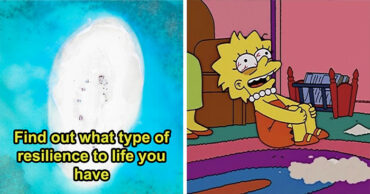Being a nanny or a babysitter is no easy job. Today, many parents desperately need someone to help them take care of their kids. Still, when it comes to childcare workers in general, the turnover rate in the U.S. is staggeringly high – 65% higher than turnover in the median occupation.
It’s mostly due to low wages, but working conditions have something to do with it too. Take this 23-year-old babysitter: she decided to call it quits after the demon child she was looking after intentionally ruined her $1,000 laptop by smashing it and then dumping water on it for good measure. After the parents only sent her a text saying “Sorry,” she started wondering: should she demand reimbursement?
A babysitter had her laptop destroyed by a 7-year-old and wondered if she should ask the parents to pay for it
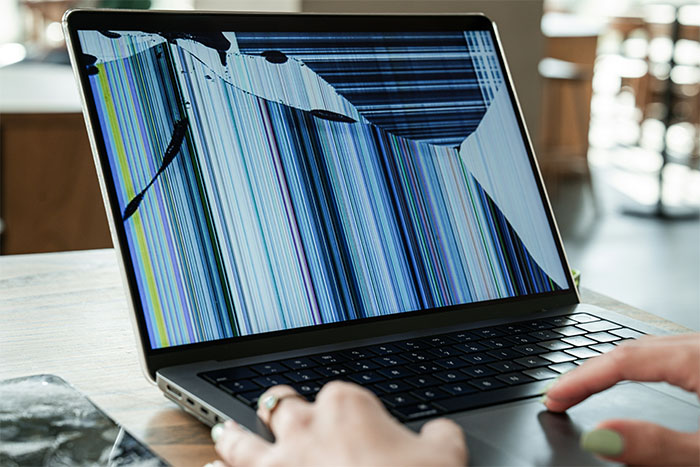
Image credits: Ahmed / Unsplash (not the actual photo)
Her story sparked a discussion about whether it was her own fault or if the parents were liable for the damage
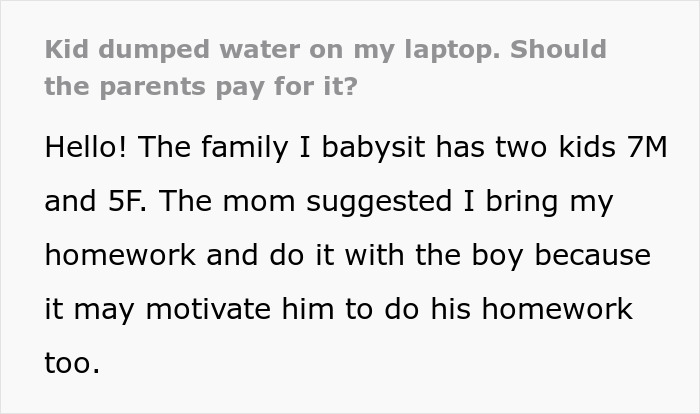
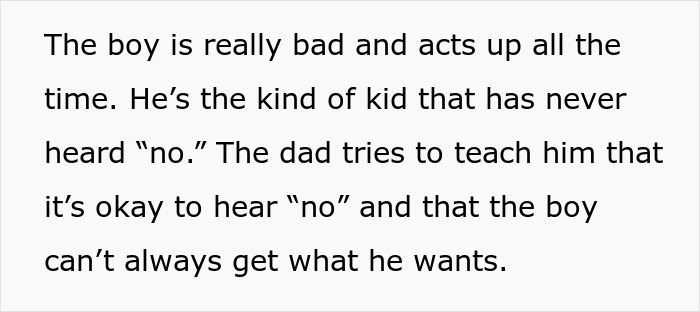

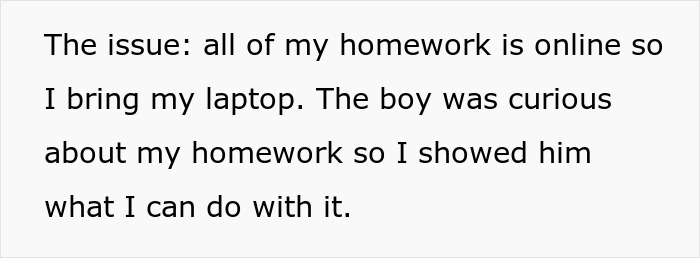
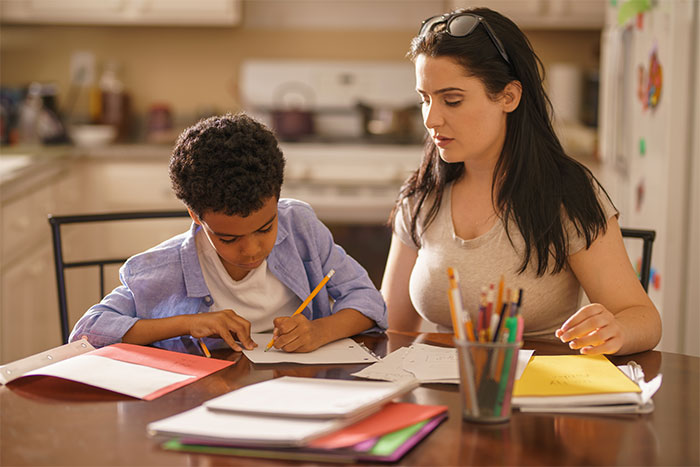
Image credits: joshua_resnick / Envato Elements (not the actual photo)
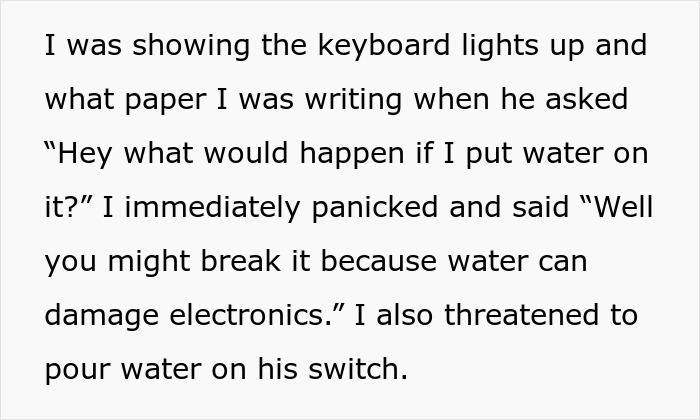

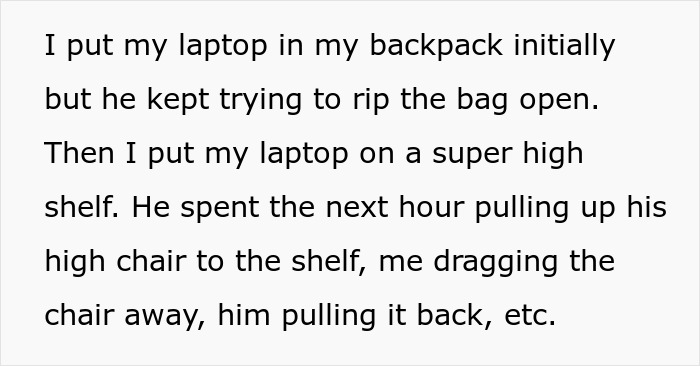
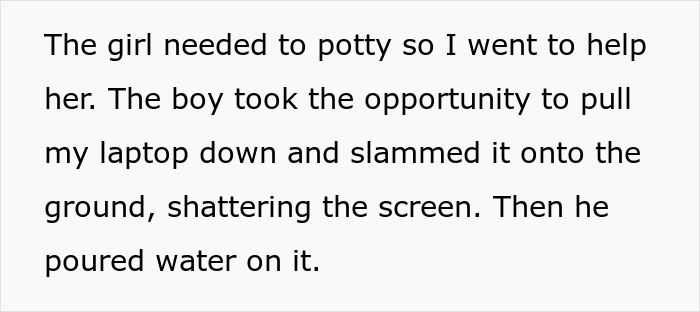

Image credits: pvproductions / Freepik (not the actual photo)
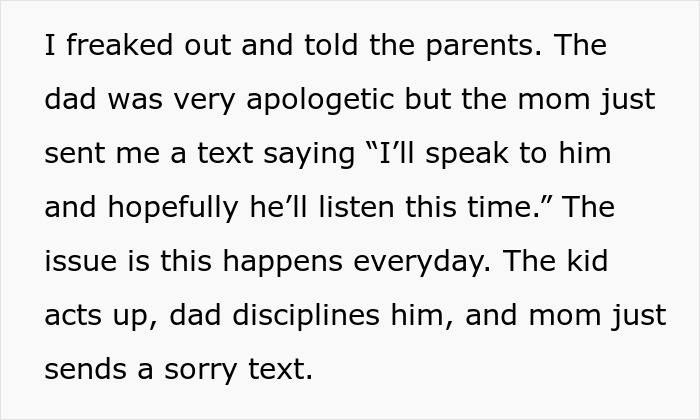
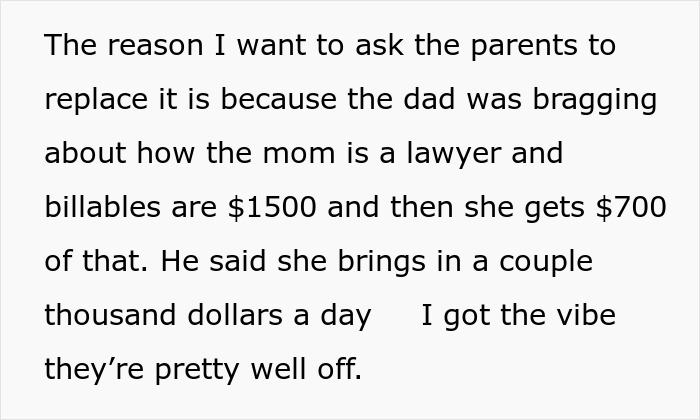
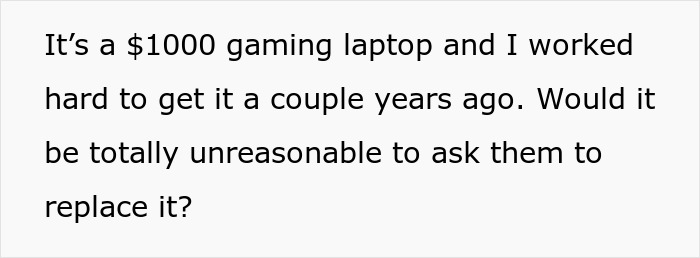
Image credits: Feisty_Bag289

Image credits: Kaboompics / Pexels (not the actual photo)
Parents are usually liable for the damage their kids do to other people’s property
Accidents happen, especially when kids are involved. If you’ve ever been around small children, you know that even the most well-behaved angels can paint the walls with markers and smash a vase when they’re not supervised.
In most babysitting or nanny job scenarios, some property of the family gets destroyed or damaged while the babysitter is on the job. Then, if they can prove it, the family can sue the babysitter or nanny for negligence and get reimbursed for the damages.
Professional nannies or those who babysit often can also take out liability insurance to protect themselves in case the child gets injured or any property of the family is destroyed. According to Kid Sit, only 8.45% of babysitters have liability insurance.
But in cases like this one, when the babysitting agreement (there probably even wasn’t one) is super off the books, it becomes trickier. In this case, the nanny is virtually just an individual whose personal property was damaged by the children. So, would the parents be liable in these circumstances?
According to Nolo, in most states in the U.S., parents are on the hook for the damage their kids do to other people’s stuff. It varies by state, but parents are usually responsible for the misdeeds of their kids from when they’re born until the age of 18 or 21.
Granted, there are exceptions. In New York, for example, parents are responsible for their kids’ misdemeanors between the ages of 10 and 18. In Maine, it’s from 7 to 17 years old.
If a kid breaks something that belongs to the other person while in his own home, homeowner’s or renter’s insurance might cover it. But only in cases when the kid acts unintentionally.
“If your child acted intentionally to hurt someone or cause property damage, your homeowners’/renters’ insurance won’t cover any losses resulting from those actions,” David Goguen, J.D., writes for Nolo.
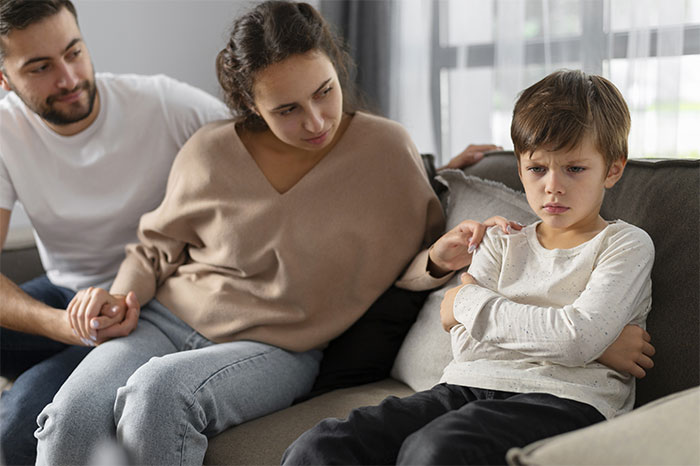
Image credits: freepik / Freepik (not the actual photo)
Making empty threats is a dangerous parenting strategy
Many commenters also called out the parents for using empty threats as a parenting technique. The babysitter did it when she threatened to pour water on the kid’s Nintendo Switch, but, as we can probably tell from the outcome, it wasn’t a successful strategy to deter him from messing with her laptop.
People in the comments dragged the dad for suggesting such a thing: “Empty threats do not work and only make things worse because the kid realises you’re never going to actually do anything,” u/sunbakedbear wrote.
Even if most experts agree, one in four parents still rely on empty threats as a parenting strategy. As the pediatrician at the University of Michigan Health C.S. Mott Children’s Hospital Susan Woolford, M.D., explains, “[they] undermine trust and credibility and aren’t usually effective. Positive reinforcement and consistent discipline are more likely to shape long term behavior.”
Dr. Hansa Bhargava who worked as a pediatrician at Children’s Healthcare of Atlanta, told CNN that empty threats diminish the parent’s authority in the child’s eyes. In fact, as they grow up and start having important life questions, they might look for answers elsewhere.
“If you are not consistent and don’t follow through, they won’t listen, and they won’t be as welcome when you do follow through,” Dr. Bhargava says. “Consistency is key.”
Most of the commenters sided with the babysitter: “It’s actually appalling that they didn’t immediately offer
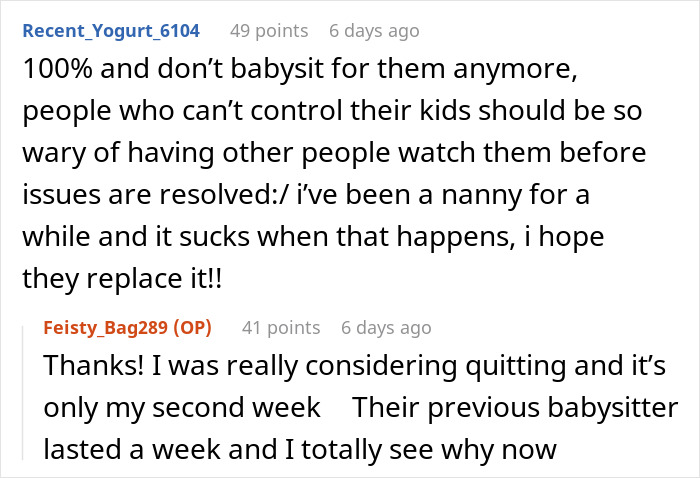




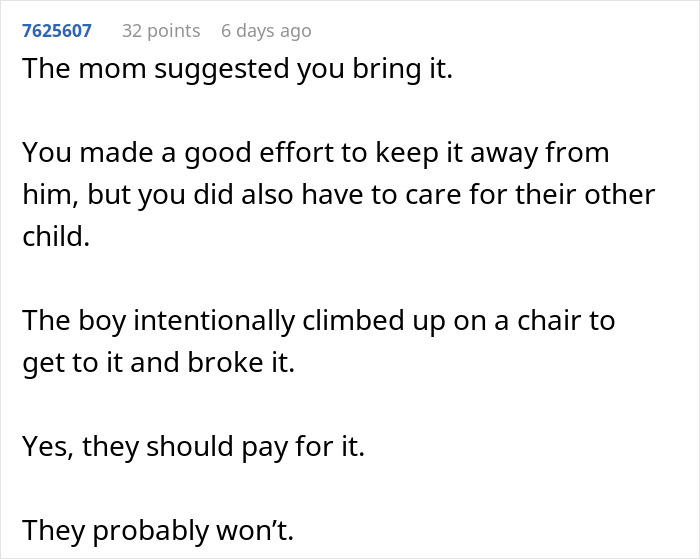
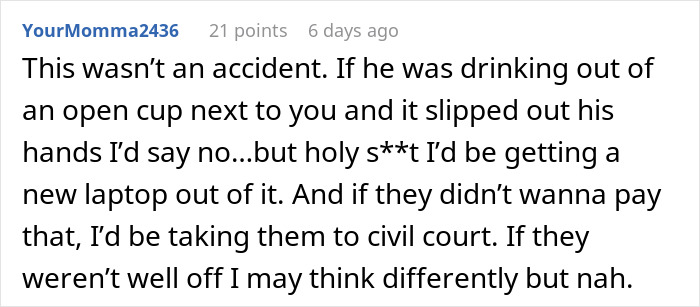
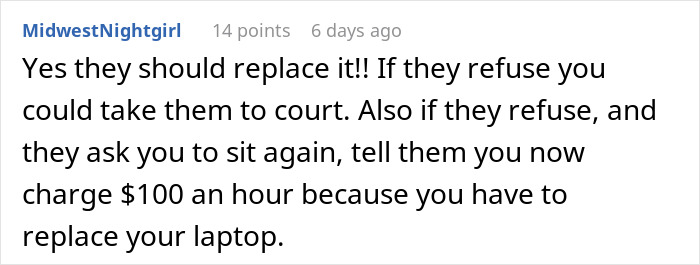
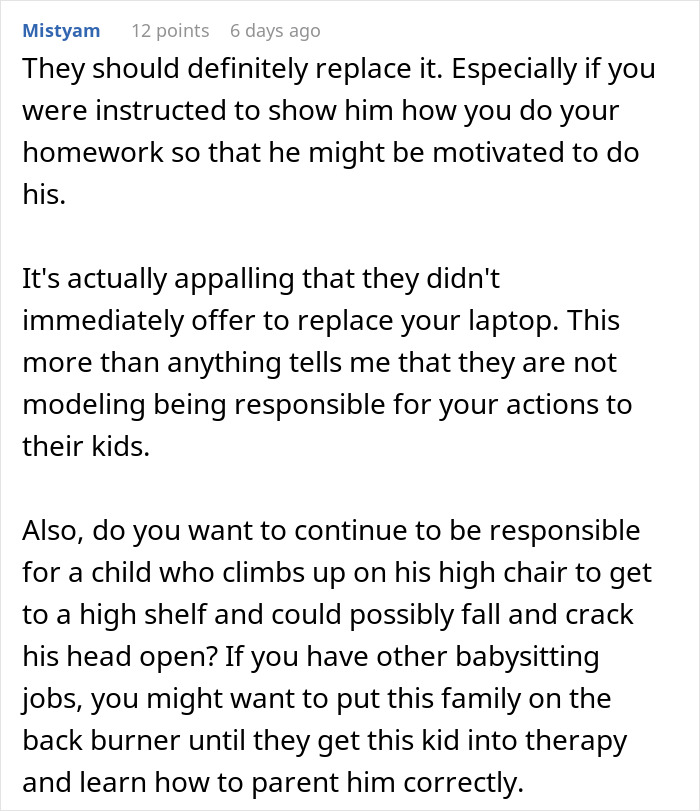

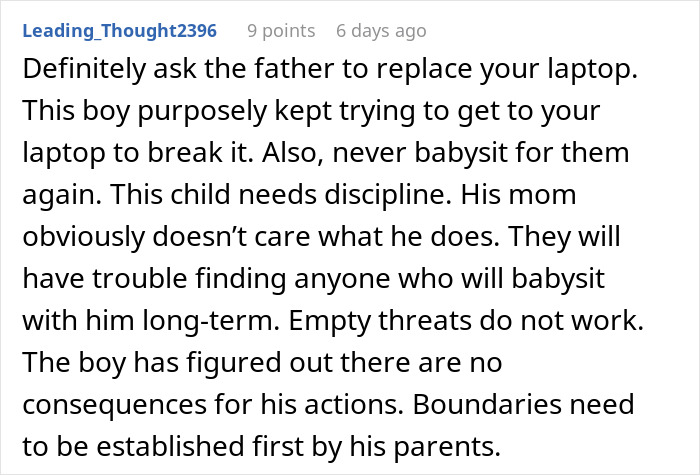

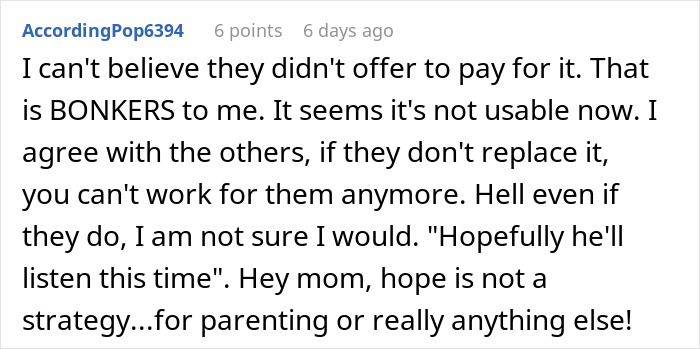
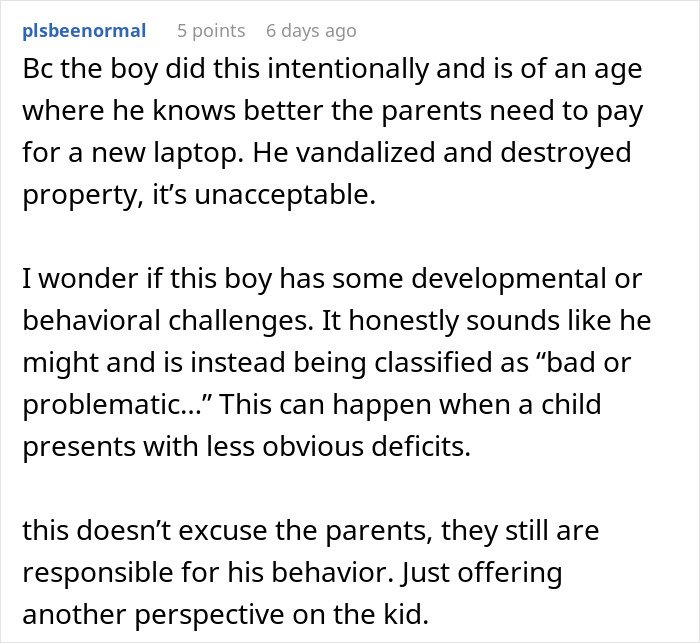


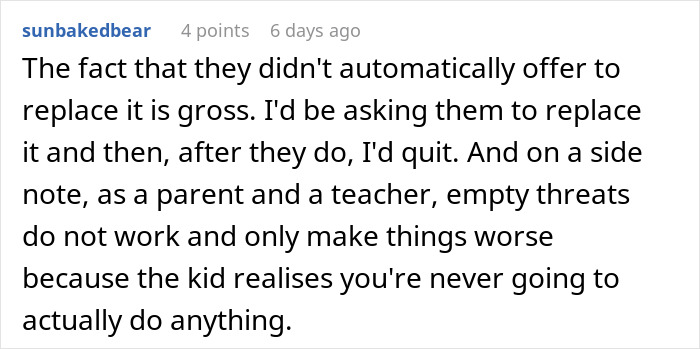
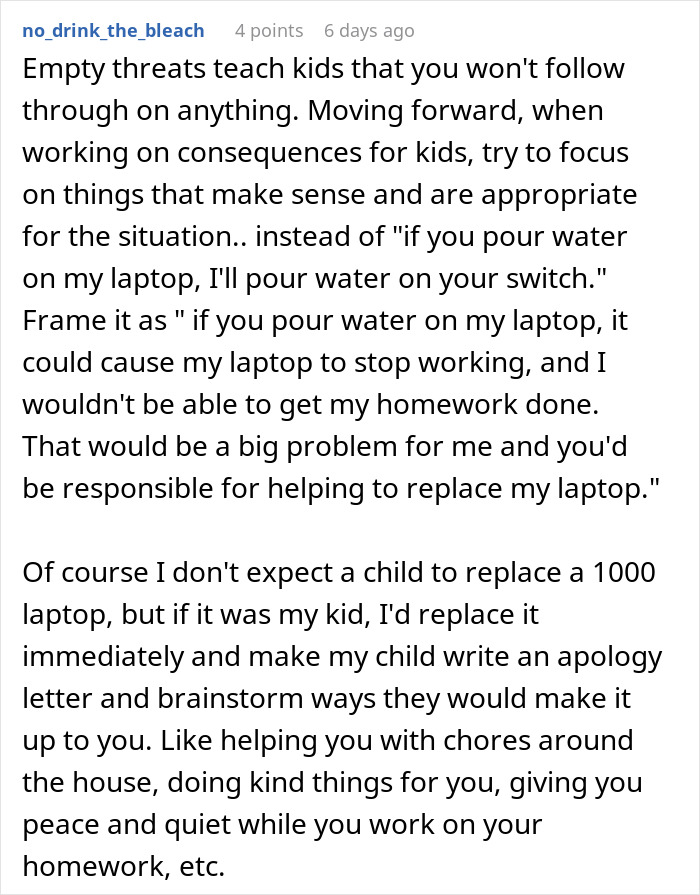

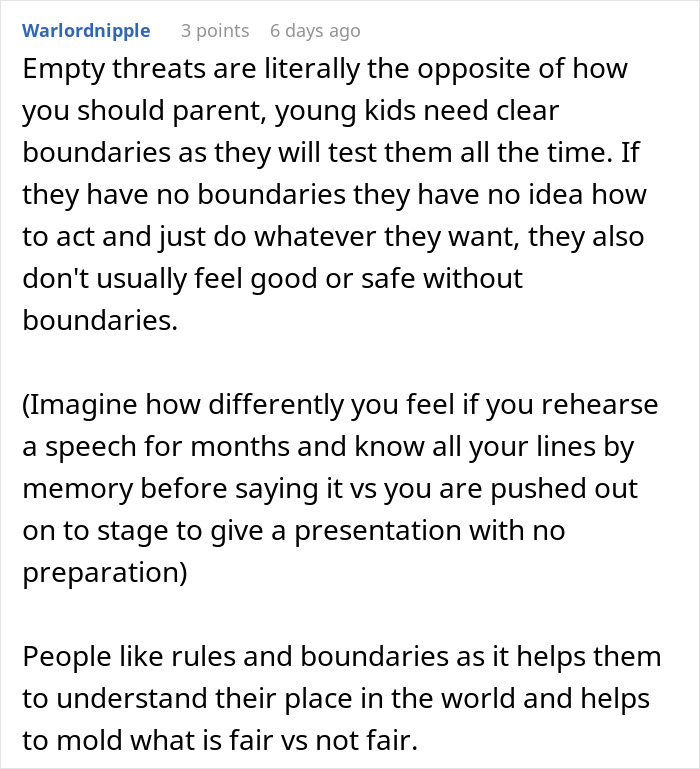
 Follow Us
Follow Us





